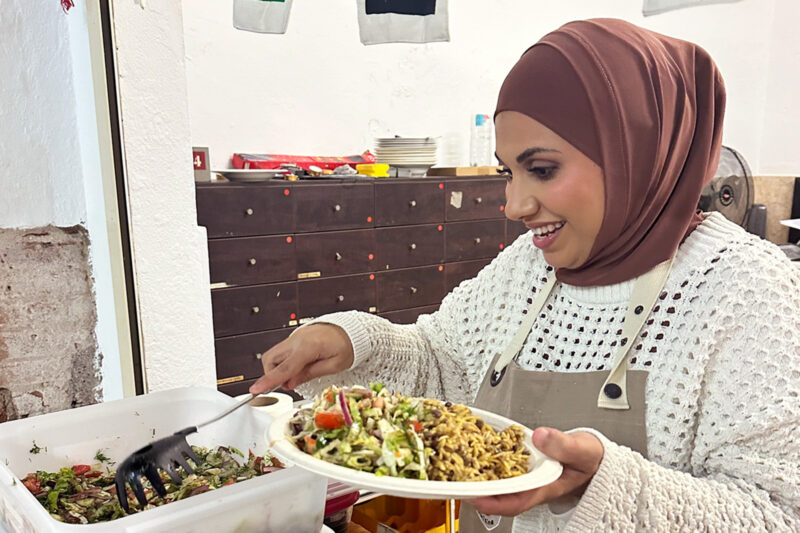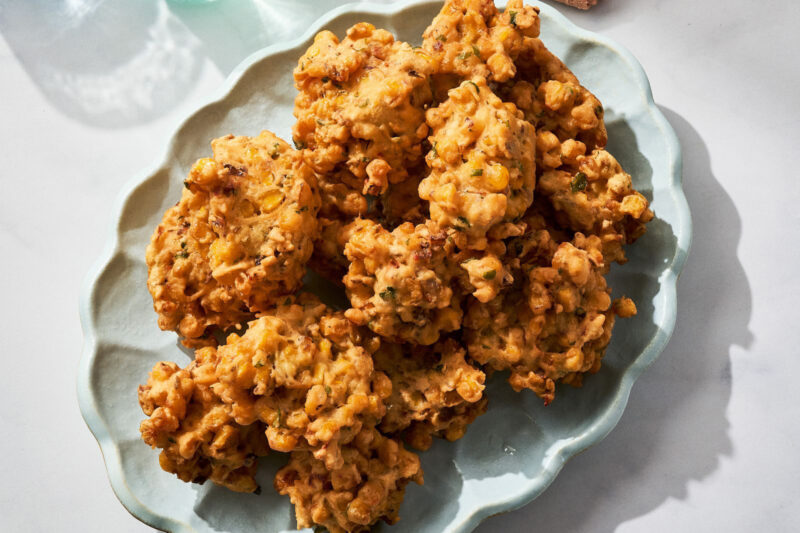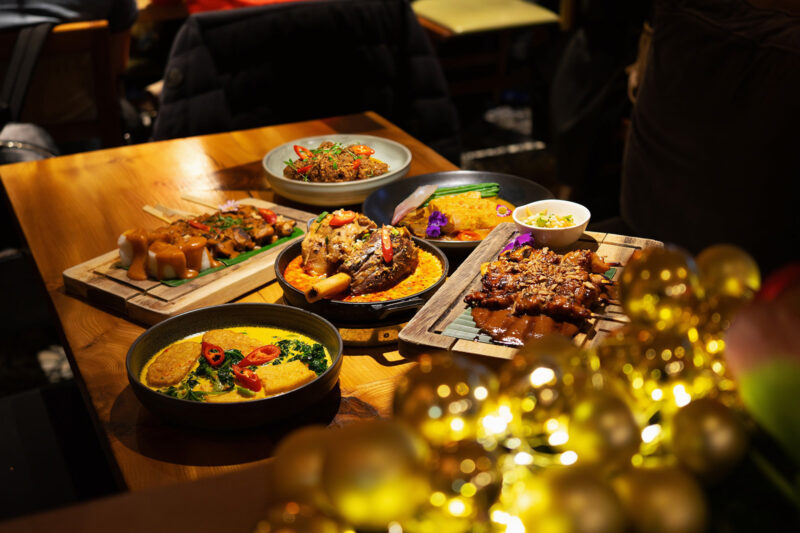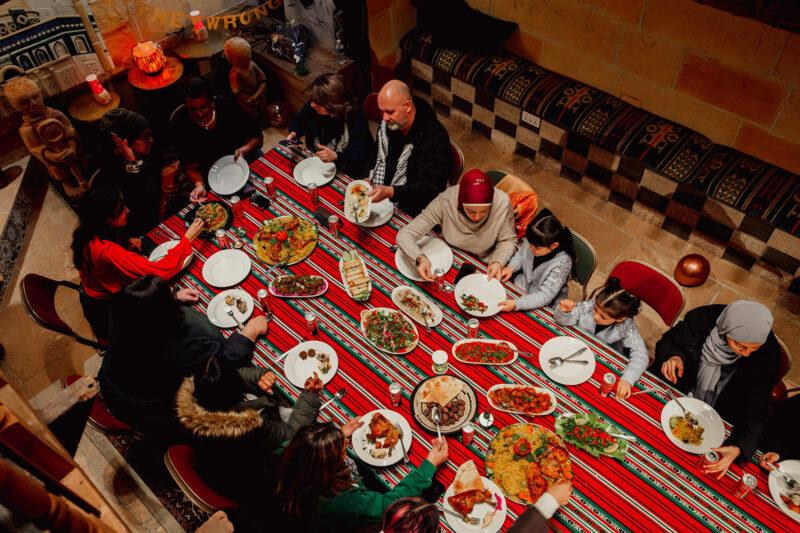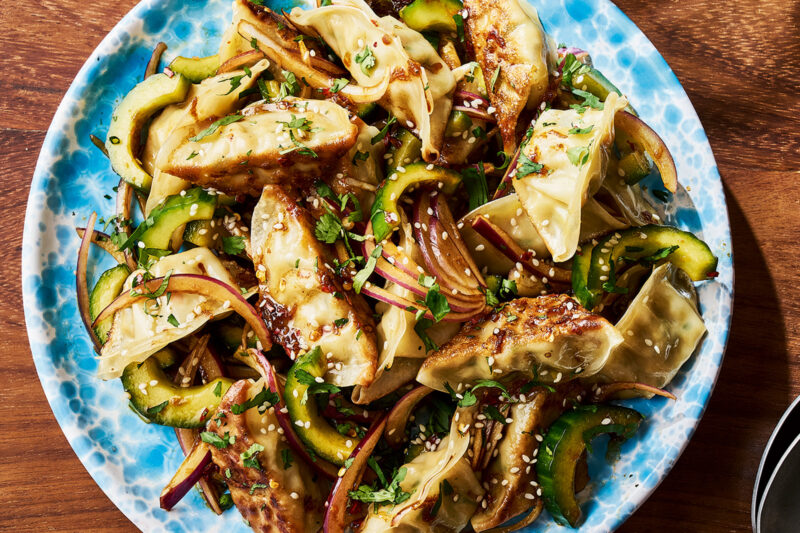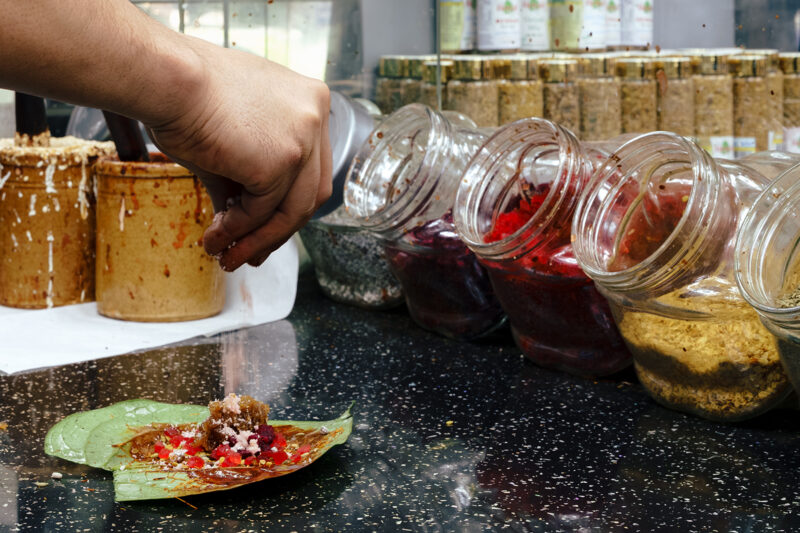Home cooking for the time-poor — but are meal kits worth it?
With a range of halal meal kits on offer that can be delivered to your door, the idea of reducing the mental load of planning meals and shopping for ingredients is alluring
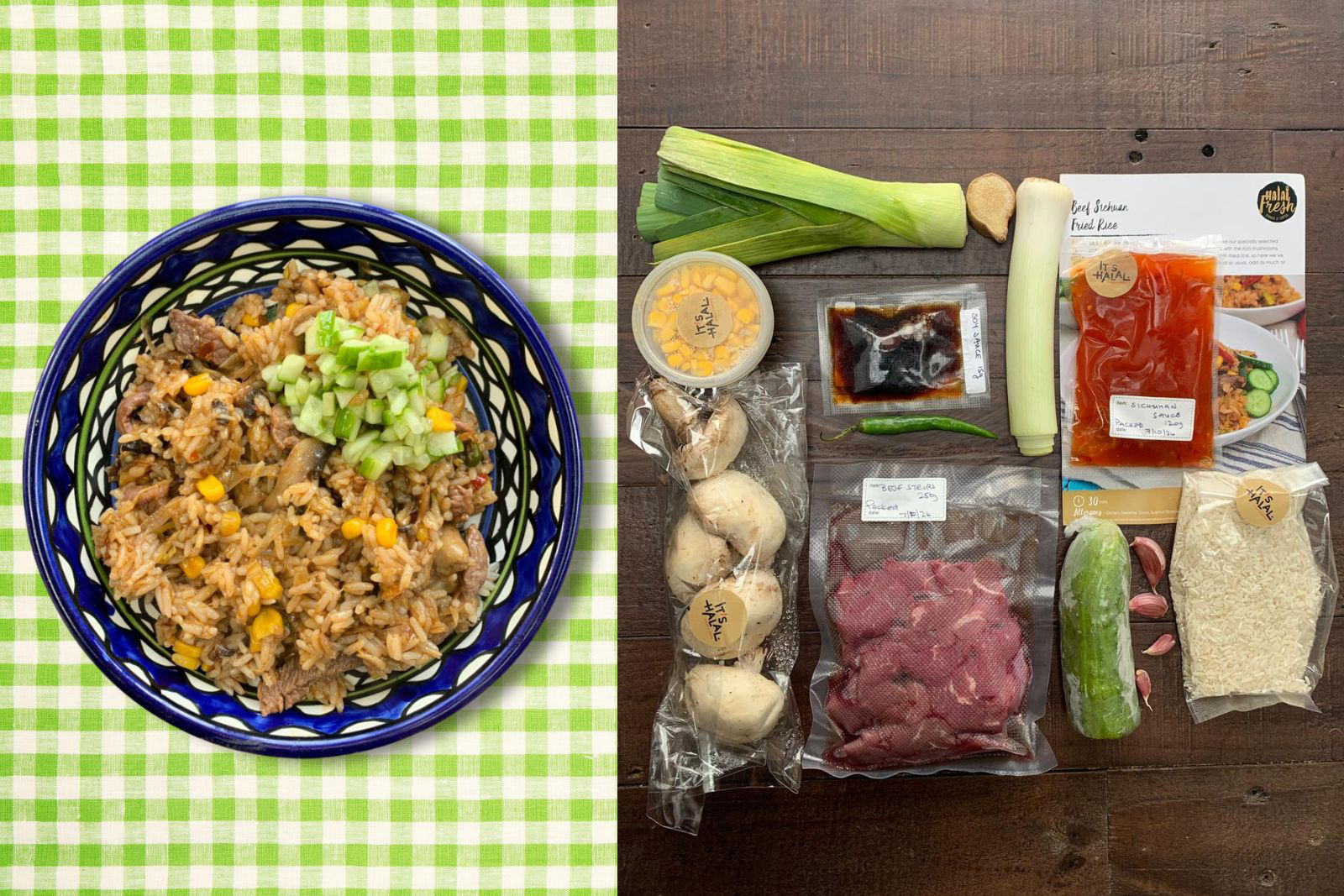
A fresh-faced young man recently knocked on my door to alert me that the meal kit provider he works for, Hello Fresh, was offering their largest ever discount on meal boxes. In a well-rehearsed script, he asked probing questions about my cooking and eating habits. He explained that as a subscriber, all I had to do was choose a selection of dishes from a varied menu, which would then be delivered weekly to my door in a box with portioned ingredients and a recipe card to cook the meal myself.
I politely declined, but it did get me wondering about the allure of these companies. Hello Fresh, perhaps the most well known meal kit provider, has reached 7 million active customers across Europe, North America and Australia.
A meal kit subscription service has never tempted me before — not only because it’s a more expensive way of eating at home, but I enjoy picking out ingredients and carefully inspecting the tomatoes and chillies I buy. The supermarket aisles are a source of inspiration for me, and I often decide on meals to cook at the last minute.
Nonetheless, I decided to spend a month testing out some of these options, focusing specifically on halal food offerings, to see what all the fuss was about.
I began with It’s Halal, a Halal Monitoring Committee-certified meal kit company delivering recipe boxes nationwide, containing pre-portioned ingredients and a recipe card. Within a matter of days I had a box containing all I needed to cook up beef Sichuan with pickled cucumbers, beef noodles with black bean sauce, and habanero chicken with coriander rice. There was a selection of 12 dishes to choose from, ranging from Yemeni to Thai and Indian.
I could instantly tell the ingredients were of a high quality, as the beef appeared to be a premium cut and the vegetables looked fresh and vibrant. The habanero chilli sauce was my favourite; I found it warming and spicy, mopping up the sauce with bread once I’d finished the chicken.
The recipe cards were easy to follow, detailing exact quantities of water and oil to use, directions on how to cut the vegetables, and how long to fry items for on a low, medium or high heat. It’s certainly a helpful way for people to learn how to cook. Though my own method of cooking rice surpasses what they suggested.
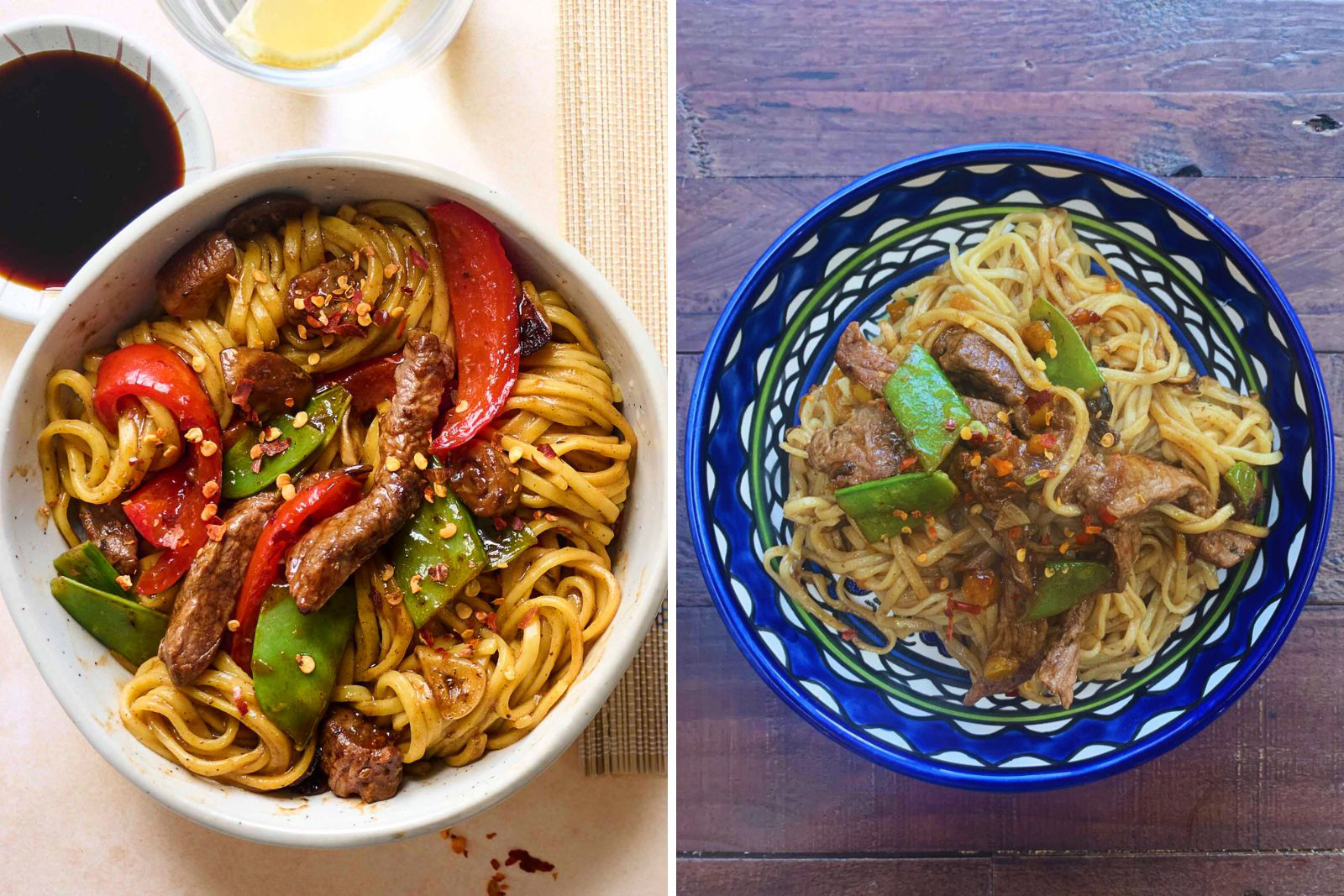
The three meals I ordered for two people cost £46.99 including an £8 delivery fee. While this is more competitive than a take out delivery meal, I felt the portion size was too small and the prep and cooking time was longer than stated.
Another popular option for pre-prepared meals are the protein-packed meal plans delivered to your door to be heated up, with no cooking involved. Simmer Eats has delivered more than 1 million meals across the UK and claims to offer “the ultimate solution for the time, taste and health conscious” by delivering chef-made halal dishes nationwide.
Their branding, website and story of humble origins as a family operation are all very well executed, but I cannot say the same for the food. Though the Indian-inspired dishes I sampled were flavoursome with accompaniments such as pickled red onions and fried bhaji, the Malaysian dish resulted in soggy tofu once heated up. The experience was only made better by the price — a promotional discount meant my six-meal plan cost £31.46 — about £5.25 per meal.
An alternative option is Bozu, which also offers halal meals made to be heated up at home. Thankfully, they taste less like a ready meal and more like a restaurant dish. I ordered the harissa beef and tabbouleh, which was extremely tender and well-flavoured. A two-week minimum is required to sign up, costing around £52 per week for six individually portioned meals.
My final experiment took me to a London-based Lebanese meal delivery service by Modo’s. While Simmer and Bozu are selling convenience, Modo’s is selling homely comforts and nostalgia through traditional homemade Beiruti dishes. Started by husband-and-wife team Mohamad and Dunia Baadarani, with a WhatsApp ordering process handled by their children, Modo’s offers unique dishes often made as a labour of love for friends and family, including moghrabieh (pearl couscous, chickpeas, onions and chicken in a spiced warming broth), aubergine fatteh and shish barak (meat-filled small dumplings in an aromatic yoghurt sauce).
The one-week plan consists of three mezze, main and dessert dishes for £39. The food blew me away — I could taste the care and love in each dish, and it felt like a to-go box from a friend’s gathering, not a meal I had ordered online. The pudding included date cake, umm ali (an Arab bread and butter pudding) and lazy cake (a no-bake cake made using digestive biscuits and melted chocolate), and tasted as if it came straight from a Ramadan iftar dessert table of dreams.
I went into this culinary experiment with scepticism, as someone who loves cooking and enjoys a regular meal out, but I see the allure of reducing the mental load around planning meals, shopping for ingredients and bartering with butchers over the right cut of meat. When people are increasingly time-poor, the benefits of meal kits are obvious. Still, the joys, financial savings and possibilities of cooking for yourself is a luxury I cannot see myself forgoing.
 Newsletter
Newsletter








